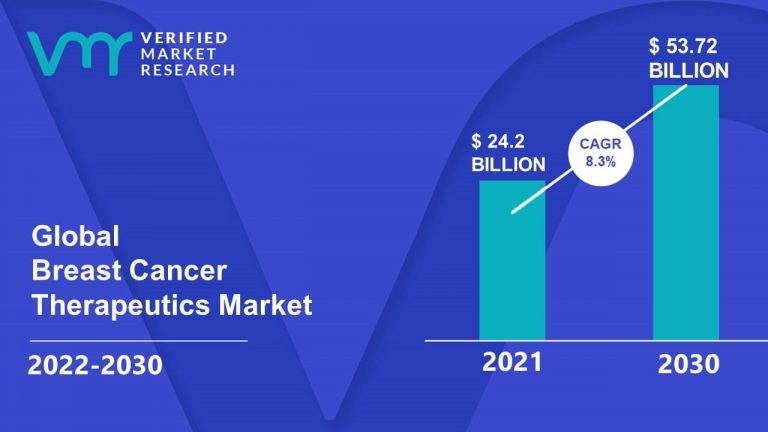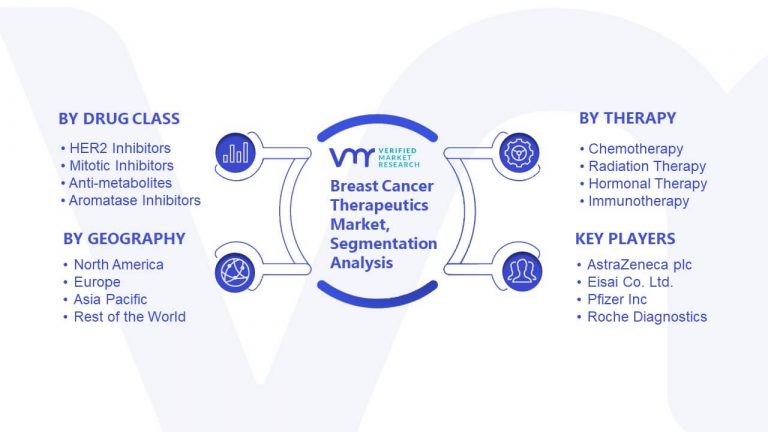Theme: Breaking Barriers: Equity, Access, and Inclusivity in Breast Cancer Care
Breast Cancer Summit 2024
Event: 14th World Congress on Breast Cancer Research & Therapies
Date: June 13-14, 2024
Location: Rome, Italy
About us:
Welcome to the 14th World Congress on Breast Cancer Research & Therapies, a pioneering global platform dedicated to advancing the frontiers of breast cancer research, treatment, and patient care. Scheduled to take place from June 13th & 14th, 2024, in the captivating city of Rome, Italy, this conference brings together leading experts, oncologists, researchers, clinicians, and healthcare professionals from around the world.
Our Mission:
At the 14th World Congress on Breast Cancer Research & Therapies, our mission is clear: to foster collaboration, innovation, and knowledge exchange among professionals committed to eradicating breast cancer. With breast cancer being one of the most prevalent and impactful diseases globally, our congress aims to address its multifaceted challenges through cutting-edge research, multidisciplinary discussions, and breakthrough therapeutic approaches.
Key Objectives:
Our congress is dedicated to achieving the following key objectives:
- Knowledge Exchange
- Collaboration
- Patient-Centric Focus
- Education and Training
- Awareness and Advocacy
Congress Highlights:
Plenary Sessions: Engage with renowned experts delivering keynote presentations on the latest trends, challenges, and advancements in breast cancer research and therapies.
Scientific Sessions: Explore a diverse range of topics spanning genetics, molecular biology, treatment modalities, survivorship, and more.
Interactive Workshops: Participate in hands-on workshops focused on practical skills, new technologies, and innovative approaches in breast cancer research and care.
Poster Presentations: Discover cutting-edge research through dynamic poster sessions, encouraging lively discussions and idea sharing.
Networking Opportunities: Connect with peers, collaborators, and industry representatives in a vibrant environment conducive to knowledge exchange and partnership building.
Target Audience:
- Medical Professionals
- Researchers and Scientists
- Radiation Oncologist
- Medical Oncologist
- Breast Care Nurse
- Surgeon
- Reconstructive (plastic) Surgeon
- Lymphoedema Therapist
- Breast Cancer Surgeons, Pathologists
- Patient Advocates and Support Groups
- Pharmaceutical and Biotech Professionals
- Survivors and Patients
- Medical Industry Representatives
The Breast Cancer Summit 2024 aims to provide optimal healthcare and well-being for young women and girls, concentrating on preventing, diagnosing, and addressing Breast Cancer, along with its associated fields such as Genetics, Pathophysiology, Epidemiology, and Clinical Reports.
Track 1: Breast Cancer:
Breast cancer is a complex and prevalent disease characterized by the uncontrolled growth of cells within the breast tissue. It affects both men and women, with women being more commonly diagnosed. Early detection plays a crucial role in improving outcomes. Regular self-examinations, clinical screenings, and mammograms aid in identifying potential abnormalities at an early, more treatable stage.
Breast cancer can be categorized based on its receptors—hormone receptor-positive (HR+), HER2-positive, and triple-negative. Each subtype demands tailored treatment approaches, including surgery, chemotherapy, radiation, targeted therapy, and hormonal therapy. Researchers and medical professionals continue to make strides in understanding the disease, comprehensive care, early intervention, and collaborative efforts remain vital in the fight against breast cancer.
Track 2: Immunotherapy in Breast Cancer:
Immunotherapy is a new way to fight breast cancer by helping the body's immune system identify and destroy cancer cells. This approach is especially promising for aggressive types of breast cancer like triple-negative and HER2-positive cancers. Immunotherapy treatments include:
- Checkpoint inhibitors: Drugs that help the immune system recognize and attack cancer cells more effectively.
- Monoclonal antibodies: Targeted therapies that can mark cancer cells for the immune system to find and destroy.
- Cancer vaccines: Aim to prevent cancer from coming back by training the immune system to fight cancer cells.
- CAR T-cell therapy: A treatment that enhances the patient's own immune cells to better fight cancer.
These treatments offer new hope, especially for breast cancer that's hard to treat with traditional methods. Research is ongoing to find the best ways to use immunotherapy, alone or with other treatments, to improve outcomes for breast cancer patients.
Track 3: Precision Medicine and Genomics:
Precision medicine in breast cancer involves tailoring treatment plans to each patient's unique genetic makeup and the specific characteristics of their cancer. Genomics plays a crucial role by analyzing the genes within cancer cells to identify mutations or abnormalities driving the cancer's growth. This information helps doctors select the most effective therapies with fewer side effects.
Genomic testing, such as next-generation sequencing, provides detailed insights into a tumor's genetic profile, guiding treatment decisions. For example, if a patient has a mutation in the BRCA gene, they might benefit from targeted therapies like PARP inhibitors.
Precision medicine aims to improve outcomes by offering personalized treatments that target the specific vulnerabilities of a patient's cancer. It's a step away from the traditional one-size-fits-all approach, offering hope for more effective and less toxic treatments tailored to each individual's cancer biology.
Track 4 : Novel Therapeutic Targets:
In breast cancer research, scientists are constantly searching for new "targets" within cancer cells that can be treated with therapies. These targets are specific molecules or pathways that play a key role in cancer growth and spread. Identifying novel therapeutic targets helps develop treatments that can precisely attack cancer cells while sparing healthy tissue.
For instance, researchers are studying the PI3K/AKT/mTOR pathway, commonly altered in breast cancer, as a potential target for drugs. Another target is the HER2 protein, overexpressed in some breast cancers, leading to drugs like trastuzumab.
Emerging targets such as CDK4/6 inhibitors are showing promise, particularly in hormone receptor-positive breast cancer. By understanding these targets, scientists develop new drugs to block or interfere with them, disrupting cancer growth.
Track 5: Breast Cancer Vaccines:
Breast cancer vaccines are like training programs for the immune system, teaching it to recognize and fight breast cancer cells. These vaccines target specific proteins on cancer cells, such as HER2, found in some breast cancers. By stimulating the body's defenses, vaccines like Herceptin help destroy these harmful cells.
Another type of breast cancer vaccine aims to prevent cancer from coming back after treatment. These vaccines trigger the immune system to remember and attack any remaining cancer cells, reducing the chances of recurrence.
Though still in research, breast cancer vaccines hold promise for personalized and effective treatment. They offer hope for a future where our immune systems can be primed to defend against breast cancer, potentially improving outcomes and reducing the need for aggressive therapies.
Track 6: AI and Machine Learning in Breast Cancer:
AI and machine learning are transforming breast cancer care by analyzing medical images for early detection. These technologies predict treatment responses based on patient data, creating personalized therapy plans. By uncovering new cancer subtypes, they drive targeted drug development. In essence, AI offers precise diagnoses, tailored treatments, and improved outcomes in the fight against breast cancer.
Track 7: Metastatic Breast Cancer:
Metastatic breast cancer, also known as stage IV breast cancer, means the cancer has spread from the breast to other parts of the body. While not curable, treatments focus on managing symptoms and extending life.
Therapies include chemotherapy, hormone therapy, and targeted treatments to slow cancer growth. Managing symptoms like pain and bone health is crucial for quality of life. Patients benefit from a team approach with oncologists and palliative care specialists.
Clinical trials offer hope for new treatments, emphasizing the need for ongoing research. Though challenging, advancements in managing metastatic breast cancer offer patients more options and improved quality of life.
Track 8: Lifestyle, Prevention, and Survivorship:
In breast cancer care, lifestyle choices play a vital role in prevention and survivorship. Healthy habits like regular exercise, a balanced diet, and avoiding smoking can lower the risk of developing breast cancer and improve outcomes for survivors.
Preventive measures also include regular screenings, such as mammograms, to detect cancer early when treatment is most effective. For survivors, survivorship care plans focus on monitoring for recurrence, managing side effects, and promoting overall well-being.
Support groups, counseling, and survivorship programs offer emotional and mental support. By adopting a healthy lifestyle, staying vigilant with screenings, and accessing survivorship resources, individuals can enhance their journey through breast cancer and beyond.
Track 9: Advances in Radiation Therapy:
Advances in radiation therapy are revolutionizing breast cancer treatment, offering precise and targeted approaches to destroy cancer cells while minimizing damage to healthy tissue. Techniques like intensity-modulated radiation therapy (IMRT) and proton therapy deliver radiation with pinpoint accuracy, reducing side effects and improving outcomes.
Hypofractionated radiation schedules shorten treatment durations, making it more convenient for patients. Image-guided radiation therapy (IGRT) uses real-time imaging to adjust treatment, ensuring accuracy.
Intraoperative radiation therapy (IORT) delivers a single dose of radiation during surgery, sparing healthy tissue. These advancements in radiation therapy enhance effectiveness, reduce treatment times, and improve quality of life for breast cancer patients, marking a significant stride in the fight against the disease.
Track 10: Clinical Trial Design and Patient Participation:
Clinical trial design and patient participation are critical in advancing breast cancer research and treatment. Trials are carefully planned studies that test new therapies, techniques, or approaches to improve outcomes.
Patient participation is essential for gathering data and evaluating the effectiveness of these new treatments. By volunteering for clinical trials, patients not only access potentially cutting-edge treatments but also contribute to future advancements in breast cancer care.
Researchers design trials with strict protocols to ensure patient safety and reliable results. They often compare new treatments to standard therapies to assess benefits and potential side effects.
Track 11: Health Equity in Breast Cancer Care:
Health equity in breast cancer care aims to ensure that all individuals, regardless of race, ethnicity, income, or geographic location, have equal access to high-quality screening, diagnosis, and treatment options. Disparities in breast cancer outcomes persist, with some groups facing barriers to care such as lack of insurance, limited access to screening facilities, or cultural beliefs.
Efforts to address health equity include community outreach programs, mobile mammography units, and culturally sensitive education. Advocacy for policy changes to improve access to care and reduce financial burdens on patients is also crucial.
By promoting awareness, providing resources, and advocating for equal access to care, the goal is to achieve better outcomes and reduce disparities in breast cancer outcomes across all populations.
Track 12: Breast Cancer during pregnancy:
Breast cancer during pregnancy is a rare occurrence, but it can be a complex and challenging situation for both the mother and the medical team. The diagnosis and treatment of breast cancer during pregnancy need to carefully consider the health and well-being of both the mother and the developing fetus. The goal is to provide the best possible outcomes for both the mother and the baby. Open communication between the patient, healthcare team, and specialists is crucial to making informed decisions and ensuring the best possible care for both the mother and the developing fetus.
- Fetal Monitoring
- Breastfeeding
- Diagnosis
- Multidisciplinary Team
Track 13: Male Breast Cancer Research:
Male breast cancer is a rare condition compared to breast cancer in females, but it's important to recognize that men can also be affected by this disease. Research into male breast cancer helps to understand its causes, risk factors, treatment options, and outcomes. As with any medical research, collaboration between researchers, healthcare professionals, patients, and advocacy groups is essential for advancing our understanding of male breast cancer.
- Epidemiology and Risk Factors
- Genetics and Biomarkers
- Health Disparities
Track 14: Reconstruction of Breast Cancer:
Breast reconstruction is a surgical procedure aimed at rebuilding the breast after it has been removed due to cancer (mastectomy) or damaged by other treatments. It's an option for individuals who have undergone a mastectomy and want to restore the appearance of their breast(s). Breast reconstruction can be performed at the same time as the mastectomy (immediate reconstruction) or as a separate procedure later on (delayed reconstruction). It's important to have open and thorough discussions with healthcare providers to explore the various options and make an informed choice that aligns with individual needs and goals.
- Implant-Based Reconstruction
- Autologous Tissue (Flap) Reconstruction
Track 15: Chemotherapy for Breast Cancer:
Chemotherapy is a systemic treatment that uses drugs to target and destroy rapidly dividing cancer cells throughout the body. It is commonly used in the treatment of breast cancer to shrink tumors, prevent cancer from spreading, and destroy any cancer cells that may remain after surgery. Chemotherapy might also be used in combination with other treatments, such as surgery, radiation therapy, hormone therapy, and targeted therapy.
- Effectiveness and Monitoring
- Management of Side Effects
- Psychological Support
Breast Cancer Therapeutics Market size was valued at USD 24.2 Billion in 2021 and is projected to reach USD 53.72 Billion by 2030, growing at a CAGR of 8.3% from 2022 to 2030. Breast cancer is a cancer that forms in the cells of the breasts. Breast cancer can occur in women and rarely in men. The symptoms of the breast cancer include a lump in the breast, bloody discharge from the nipple, changes in shape and size of the nipple or breast. There are 2 types of breast cancer: Non-invasive cancers stay within the milk ducts or lobules in the breast. They do not grow or invade in normal tissues within or beyond the breast. Non-invasive cancers are called as carcinoma in situ (in the same place) or pre-cancers. Invasive cancers do grow in normal, healthy tissues. Most breast cancers are invasive. Depending upon the type of cancer the treatment is determined, i.e., whether it is invasive or non-invasive cancer. Treatment varies depending upon the stage of cancer. It may consist of chemotherapy, surgery or radiation.
Early detection of breast cancer greatly increases the chances of successful treatment and saves the life. There are 2 major components of early detection of breast cancer: educate to promote early diagnosis and screening. There are 3 different types of screening tests available; they are the mammogram, clinical breast exam (CBE) and MRI (magnetic resonance imaging).

The increasing prevalence of breast cancer due to certain factors such as prolonged exposure to endogenous estrogens, late age at first childbirth, early menarche, and late menopause are driving the growth of the Global Breast Cancer Therapeutics Market during the forecast period. The Global Breast Cancer Therapeutics Market report provides a holistic evaluation of the market. The report offers a comprehensive analysis of key segments, trends, drivers, restraints, competitive landscape, and factors playing a substantial role in the market.
Image
Global Breast Cancer Therapeutics Market Overview
The Global Breast Cancer Therapeutics Market is expected to experience remarkable growth in the upcoming years owing to the increasing prevalence of the disease, particularly in developed countries, which will drive the growth of the Breast Cancer Therapeutics Market. Breast cancer is the second-most common type of cancer worldwide (whereas lung cancer is the first) and is frequently diagnosed cancer in women, according to World Health Organization statistics.
Huge costs associated with breast cancer therapeutics, increasing costs of early and late-stage disease therapy, and side effects associated with breast cancer drugs are expected to hinder the growth of the Global Breast Cancer Therapeutics Market throughout the forecast period.
Global Breast Cancer Therapeutics Market: Segmentation Analysis

Survey Report
Breast cancer is the second leading cancer in women worldwide, with nearly 1.7 million new cases diagnosed in 2012. Breast cancer is most common after menopause. American Cancer Society, for the year 2016 estimates that about 252,710 new cases of invasive breast cancer will be diagnosed in women, about 63,410 new cases of carcinoma in situ (CIS) will be diagnosed and about 40,601 women will die from breast cancer.
Conference Series takes a great pride in announcing the commencement of 13th World Congress on Breast Cancer Research & Therapies which was held during June 12-13, 2023 a webinar.
Breast Cancer Summit 2023 has received a benevolent response from all over the world. This has been conducted with the aim and the categorical intent of promoting the developments of new perceptions and ideas for exploring the high level of knowledge reached by scientific community.
The conference aimed a parallel rail with theme “Delving into the Advances in Breast Cancer Research”. The conference witnessed an amalgamation of peerless speakers, who enlightened with their enviable research knowledge and on various alluring topics related to the Breast cancer field. The highlights of the conference were the keynote forum by prominent scientists, of which the following topics were highlighted:
Title: Immune Oncology Therapy for Breast Cancer: CCR5 Inhibitors Enhance Breast Cancer Cell Killing and Reduce Doxorubicin-Induced Cardiotoxicity.
R G. Pestell, Pennsylvania Cancer and Regenerative Medicine Center USA
Title: Breast cancer cytology and ancillary techniques in Low Middle Income Group Countries (LMIC) like India.
Nandini N.M, JSSAHER, India
Title: Faster Boundary-aware Transformer for Breast Cancer Segmentation.
Xiao-Xia Yin, University of Guangzhou, China
The success of 13th World Congress on Breast Cancer Research & Therapies has given us the prospect to bring the gathering at one place in Rome, Italy and meet after this long pandemic. Conference Series hosting 14th World Congress on Breast Cancer Research & Therapies on June 13-14, 2024, in Rome, Italy.
Mark your calendars for the upcoming extravaganza; we are hoping to see you soon In person!
Let us meet again @ Breast Cancer Summit 2024
Contact details.
Email: breastcancer@asiameets.com
Link: https://breastcancer.cancersummit.org/
Conference Highlights
- Breast Cancer:
- Immunotherapy in Breast Cancer:
- Precision Medicine and Genomics
- Novel Therapeutic Targets:
- Breast Cancer Vaccines:
- AI and Machine Learning in Breast Cancer:
- Metastatic Breast Cancer:
- Lifestyle, Prevention, and Survivorship:
- Advances in Radiation Therapy:
- Clinical Trial Design and Patient Participation:
- Health Equity in Breast Cancer Care:
- Breast Cancer during pregnancy:
- Male Breast Cancer Research:
- Reconstruction of Breast Cancer:
- Chemotherapy for Breast Cancer:
To share your views and research, please click here to register for the Conference.
To Collaborate Scientific Professionals around the World
| Conference Date | June 13-14, 2024 | ||
| Sponsors & Exhibitors |
|
||
| Speaker Opportunity Closed | |||
| Poster Opportunity Closed | Click Here to View | ||
Useful Links
Special Issues
All accepted abstracts will be published in respective Our International Journals.
Abstracts will be provided with Digital Object Identifier by









